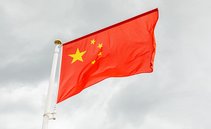China Rare Earth Resources and Technology, a listed company of state-owned conglomerate China Rare Earth Group, reported a 5.4% decline in annual revenue in 2023.

China’s rare earth miners and refiners are facing a difficult period of declining revenues and profits, despite government efforts to protect this critical sector. Meanwhile, competitors are rushing to build their own supply chains.
China Rare Earth Resources and Technology, a listed company of state-owned conglomerate China Rare Earth Group, reported a 5.4% decline in annual revenue in 2023, falling to 3.98 billion yuan ($550 million). Its net profit fell 45.7% to 417.67 million yuan.
In a disclosure to the Shenzhen Stock Exchange on April 27, the state-owned mining company said that the rare earth industry is going through a "crucial phase" characterized by rapid consolidation and significant structural adjustments on a global scale. This has led to a decrease in prices, causing an erosion of profits.
While China remains the world’s leading producer of rare earths, essential for batteries, electric cars, and other high-tech products, other countries are boosting their production capabilities.
The most recent data from the U.S. Geological Survey (USGS), widely cited by Chinese authorities and companies, show that global reserves of the 17 rare earth elements amount to 110 million tons, with China leading the way with 44 million tons, equal to 40% of the total. Behind China, we find Myanmar, Russia, India, and Australia.
According to the USGS, China led production in 2023 with 240,000 tonnes, about two-thirds of global production. The United States was the second largest producer, followed by Myanmar, both with production more than tripling over the year.
China Rare Earth Resources pointed out that "foreign countries are now actively building supply chains independent of China," highlighting efforts in places like the United States, Australia, and Southeast Asia. For some minerals, these supply chains “have already been established.”
As per China Rare Earth Resources, domestic companies have been importing rare earth and manufacturing products mined abroad since rare earth mining is strictly regulated by the Chinese government. Combined with a slowing domestic economy putting pressure on demand, the company flagged further "risk" of falling prices.
China Rare Earth Resources attributed the sharp drop in annual profits to an asset depreciation of 124 million yuan, "mainly due to inventory declines." The first quarter results show that the pressure is not easing.
Revenue fell 81.9% to 301.55 million yuan, with a net loss of 288.76 million yuan, compared with a net profit of 108.97 million yuan in the same period a year earlier. The company said the deterioration is mainly due to the continued decline in prices of rare earth products and announced "adjustments to its sales strategy" to modify products and volumes, without providing further details.
On the supply side, imports from places like Myanmar have “dramatically increased.”
Official data from Chinese customs confirms this, showing that imports of various rare earth minerals in the form of oxide products increased by about 60% to 11,000 tonnes in 2023. A strictly national limit has also been relaxed controlled rare earth extraction, allowing aggregate national production of minerals to increase by 21%, to 11,000 tonnes.
After recognizing the strategic importance of rare earths, Beijing stepped up regulation of the sector around 2010. The central government has named it one of six sectors facing severe overcapacity, where consolidation has been strongly encouraged, along with automotive, steel, cement, machine-building, and other sectors like aluminum.
Beijing has exploited its global position as the largest producer and exporter of rare earth minerals for political purposes, for example by imposing an embargo against Japan during tensions over the Senkaku Islands in the East China Sea.
After a series of consolidations, China has further tightened its grip on the industry, currently leaving four major groups. In late 2021, China Rare Earth Group was established through a merger of state-owned miners under Aluminum Corp. of China, China Minmetals, and Ganzhou Rare Earth Group.
President Xi Jinping and state leaders have highlighted the importance of the sector. In March, during a visit to Hunan province, Xi emphasized the need to "further improve" resource development and utilization of rare earth, along with coal, in the context of promoting "high-quality growth" and providing a "high level of security".
China’s focus on the sector has strengthened its players but has also pushed other countries to work on their own supply chains, with impacts now evident.
Original article published on Money.it Italy 2024-05-17 06:47:00. Original title: Terre rare, ecco perché il primato della Cina sta per finire





